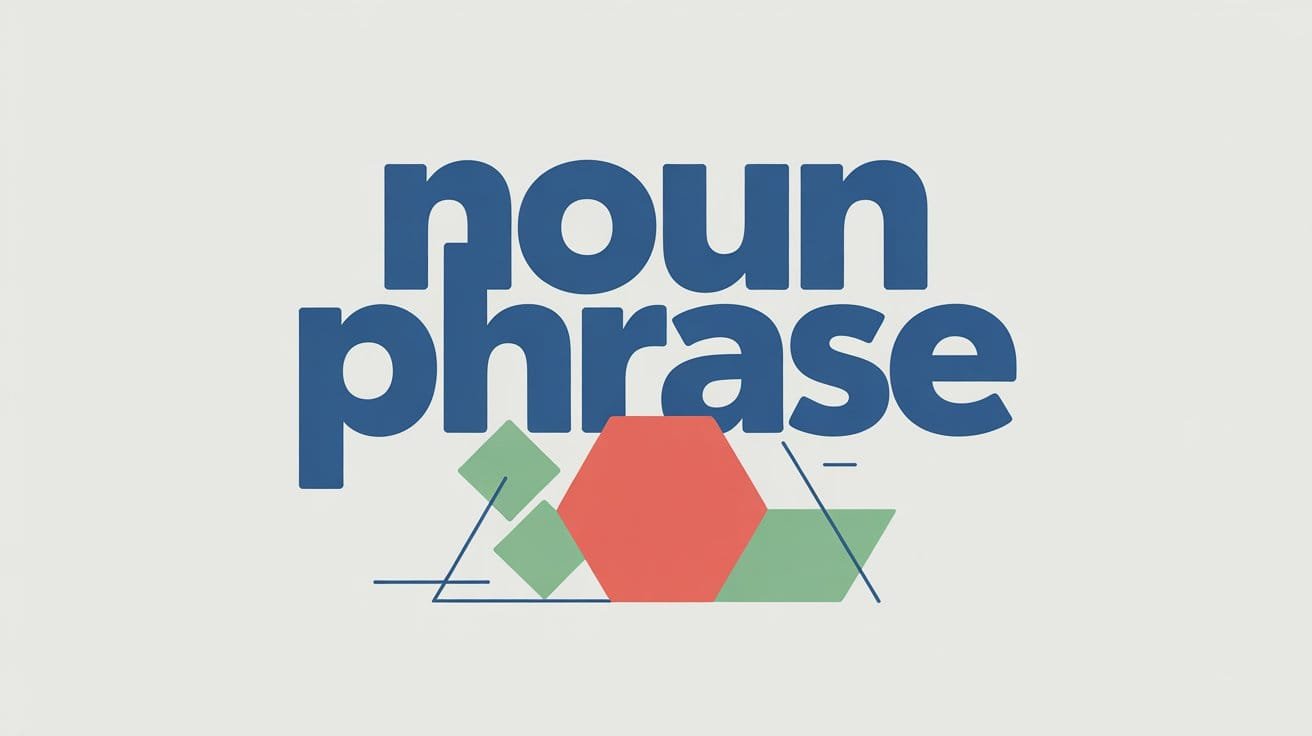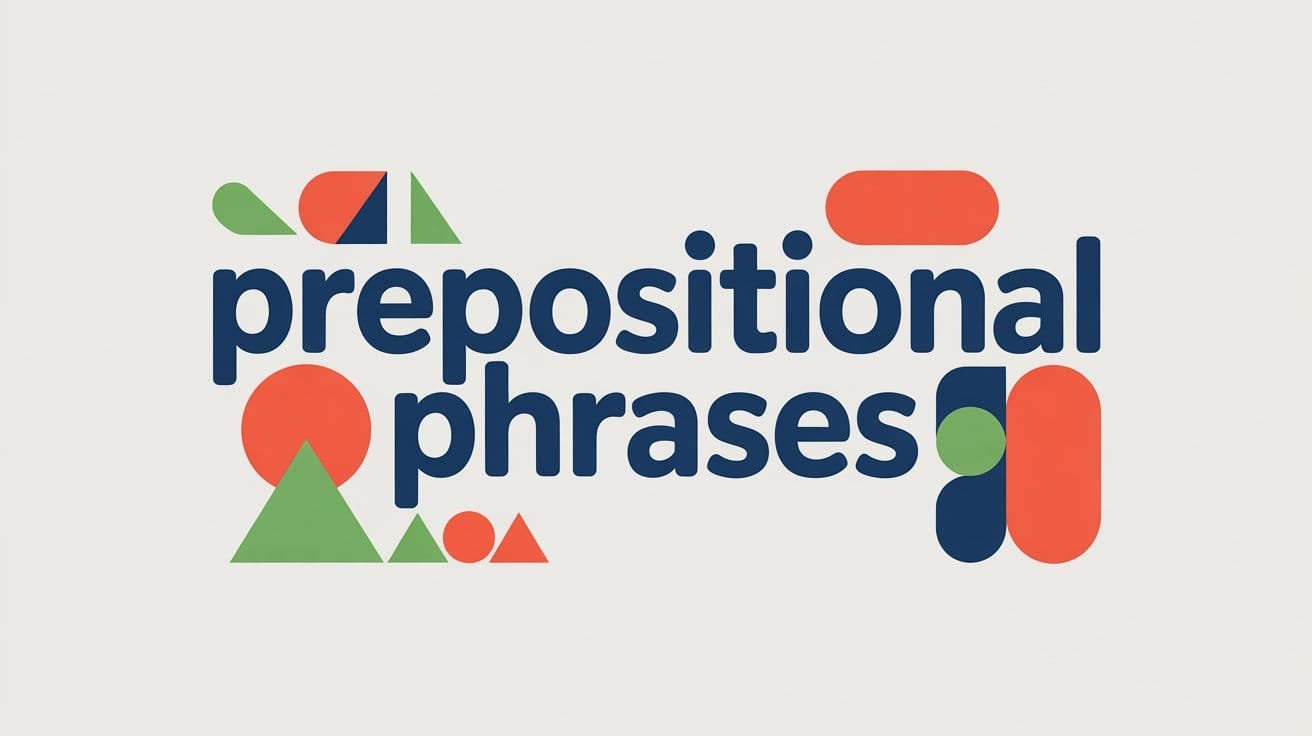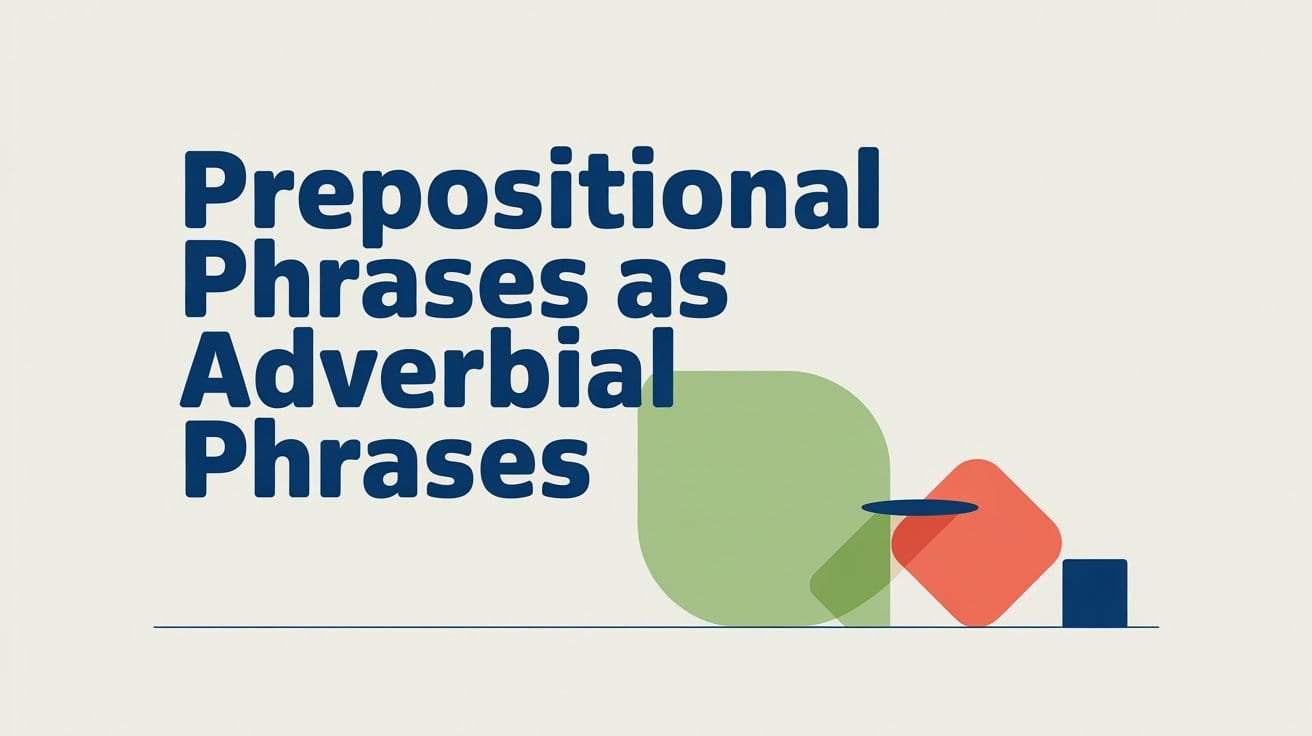A noun phrase is a group of words that functions as a noun in a sentence. It includes a noun—the main word—and any words that modify or describe it. These modifiers can appear before or after the noun.
Noun phrases can act as the subject, object, or complement in a sentence. They help provide more information about people, places, things, or ideas without repeating full sentences.
Examples:
- The old wooden chair creaked loudly. (subject)
- She bought a box of fresh strawberries. (object)
- His dream is a life filled with adventure. (complement)
Each noun phrase contains a core noun (“chair”, “box”, “life”) and words that tell us more about it. These phrases make writing more specific and engaging.
Structure of a Noun Phrase
A noun phrase is built around a head noun, which is the main word in the phrase. Other elements can appear before or after the noun to describe or clarify it.
Typical Order of Elements in a Noun Phrase:
Determiner + Modifiers (Adjectives or Phrases) + Noun + Postmodifiers
Components Explained:
- Determiner: Articles (a, an, the), possessives (my, his), demonstratives (this, those), or quantifiers (some, many)
Example: The, my, several - Premodifier: Adjectives or adjective phrases that describe the noun
Example: The shiny new laptop - Head Noun: The core noun of the phrase
Example: laptop - Postmodifier: Additional information that follows the noun, often a prepositional phrase, relative clause, or participial phrase
Example: with a cracked screen, that I bought last year
Full Example Breakdown:
The shiny new laptop with a cracked screen
→ Determiner: The
→ Premodifiers: shiny new
→ Head Noun: laptop
→ Postmodifier: with a cracked screen
This structure allows writers to add detail without making the sentence too long or unclear.
Examples of Noun Phrases in Sentences
Noun phrases can appear in different parts of a sentence—most commonly as the subject, object, or complement. Below are examples to show how they work in real sentences.
As the Subject:
- The sound of thunder startled the children.
- A basket of ripe mangoes sat on the table.
- His sudden change in behavior surprised everyone.
As the Object:
- She painted a portrait of her grandmother.
- I found a small note under the cushion.
- They adopted a playful puppy with white paws.
As a Subject Complement:
- His dream was a quiet life in the countryside.
- That smell is a mix of herbs and spices.
- The winner was the boy with the red cap.
Each noun phrase adds detail without forming a complete clause. The structure allows for precision while keeping the sentence fluid and readable.
Types of Noun Phrases
Noun phrases can range from very simple to quite detailed, depending on the words used around the noun. Here are the main types:
1. Simple Noun Phrase
A basic phrase with just a determiner and a noun—or sometimes just the noun.
Examples:
- Books
- The dog
- That idea
These are easy to spot and often used in everyday language.
2. Complex Noun Phrase
Includes modifiers before or after the noun—such as adjectives, prepositional phrases, or clauses.
Examples:
- The tall man in the gray coat
- A story that everyone remembers
- This box of old photographs from the attic
These phrases provide more detail and context.
3. Appositive Noun Phrase
Renames or explains another noun in the sentence. It usually follows the noun it refers to.
Examples:
- My cousin, a skilled musician, lives in Berlin.
- The book, a thrilling mystery novel, kept me up all night.
- Her brother, an engineer at a tech firm, is visiting next week.
Appositive noun phrases help clarify or expand on the meaning of the noun they follow.
Noun Phrase vs. Noun Clause
While noun phrases and noun clauses both act as nouns in a sentence, they are not the same. Understanding the difference helps avoid confusion when analyzing sentence structure.
Key Differences:
| Feature | Noun Phrase | Noun Clause |
|---|---|---|
| Core Element | A noun (with modifiers) | A clause (with a subject and verb) |
| Contains a verb? | No | Yes |
| Can stand alone? | No (not a full sentence) | No (dependent clause) |
| Example Role | Subject, object, complement | Same (subject, object, complement) |
| Example | The broken bicycle | What he said |
Examples in Sentences:
Noun Phrase:
- The broken bicycle needs repair.
→ Phrase built around a noun (bicycle), no verb.
Noun Clause:
- What he said was surprising.
→ Clause contains both a subject (he) and verb (said).
Though both serve the same grammatical role, the noun phrase is a simpler structure, while the noun clause carries a full thought within the noun function.
FAQs About Noun Phrases
What is a noun phrase in grammar?
A noun phrase is a group of words that acts as a noun in a sentence. It includes a main noun (the “head”) and any words that modify or describe it, such as articles, adjectives, or prepositional phrases.
How do you identify a noun phrase in a sentence?
Look for a noun and the words directly linked to it. If a group of words functions as a single noun (subject, object, or complement), it’s a noun phrase.
Example: The little boy in the red jacket waved goodbye.
Can a noun phrase be just one word?
Yes. A single noun, like apples, is the simplest form of a noun phrase. Most noun phrases include modifiers, but they aren’t required.
What’s the difference between a noun phrase and a noun clause?
A noun phrase doesn’t include a verb and is built around a noun. A noun clause includes a subject and verb and acts like a noun.
Phrase: The broken window
Clause: What she said



